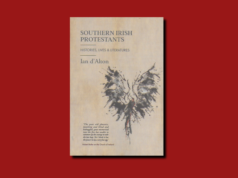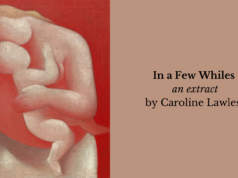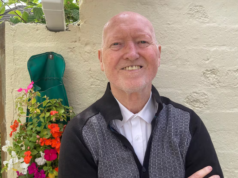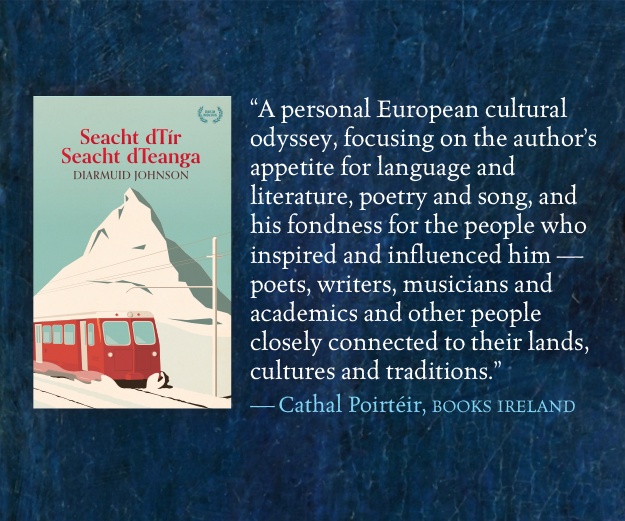Cathal Póirtéir considers the series of poetry studies from Cois Life
Cois Life have been one of the driving forces for high-quality books in Irish for the past 25 years, providing over 170 literary and academic works, and maintaining the highest editorial and production standards. To the disappointment of many, Cois Life announced that they would close up at the end of 2019. Their back catalogue, which will be handled by Cló Iar-Chonnacht, includes poetry, prose and drama, as well as non-fiction and critical works on linguistics, literature and language history. They also published attractive, colourful works for younger readers, and sometimes included audio recordings with the books.
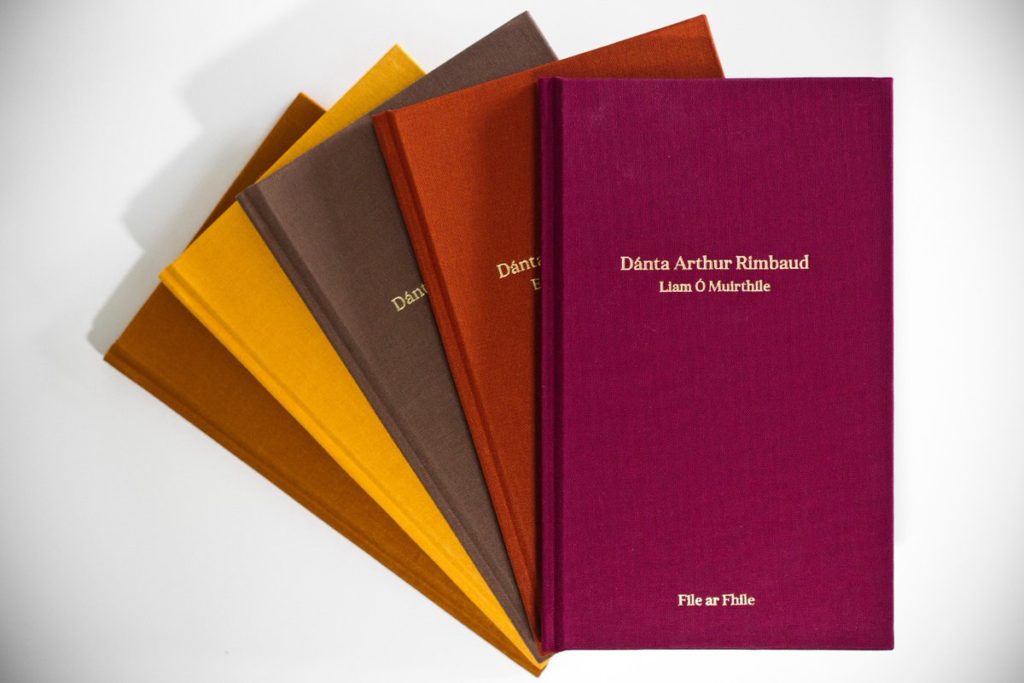
File ar Fhile: an tsraith. Cois Life; €60 hb; 978-1-912133-69-7
Cois Life are leaving us with File ar Fhile, a series where notable Irish-language poets translate works by their favourite European poets from the nineteenth century to the present. Each volume also includes the Irish poet’s reasons for choosing a particular poet and a biographical note on that poet. Each of the Irish-language poets is fluent in the language they are translating from, something that is not always the case with translations. In passing, the translators share their thoughts on the attractions and difficulties of the task, and the historical, political and cultural backgrounds of their chosen poets, almost all of which are multi-lingual. File ar Fhile is published in a limited edition of 300. They can be purchased individually or as a set. The idea came from poet Liam Ó Muirthile, who died last year, and it is published in his memory.
File ar Fhile: Arthur Rimbaud. Liam Ó Muirthile. Cois Life; 200pp; €15 pb; 21cm; 978-1-907494-90-1.
This features Ó Muirthile’s translations of Le Bateau Ivre as well as versions of a number of prose poems from Rimbaud’s Illuminations, which he offers in verse or in prose. Ó Muirthile was a long-time enthusiast of French literature and was interested in currents in European literature rather than the Anglosphere. He was attracted by the freedom from time and place he found in Rimbaud’s work, as well as his honesty and child-like imagination. Ó Muirthile hoped that his Irish-language versions will bring Rimbaud ‘over the threshold’ into a new home. Ó Muirthile read his translation of Le Bateau Ivre at an Imram event in the Centre Culturel Irlandais in Paris in 2017, the year before he died.
Ní mian liom d’uiscí na hEorpa/ ach locháinín dorcha,/ mar a seolann páiste ar ghogaide/ lán de bhriseadh croí,/ báidín chomh leochailleach/ le féileacán Bealtaine/ tráthnóna balsaim/ is an ghriain ag dul faoi. (from Le Bateau Ivre/‘An bás meisce’)
File ar Fhile: Antonella Anedda. Eiléan Ní Chuilleanáin. Cois Life; 200pp; €15 pb; 21cm; 978-1-907494-83-3.
The Italian poet Antonella Anedda was born on the small island of La Maddalena, near Sardinia, but is a long-term resident of Rome. Ní Chuilleanáin finds in her work a voice coming from the edge, challenging colonialism and poverty by evoking island folklore and traditions, or the life of the streets of Rome. Anedda’s main interest is in the truth in the lives of ordinary people, and her poetry chooses simple, measured language to present an individual human voice speaking on behalf of a community. Ní Chuilleanáin’s translations find a compatible register and vocabulary to bring Anneda’s poetry to us in most readable Irish.
Gabhadh mé i bhfiaclaibh an tsuain, d’éalaíos uaidh an béicíl:/ lig dom teacht ar áit ná rabhas riamh, fág agam na cluasa glana ó fhuaim gach aon ghutha./ Déan míorúilt amháin: cuir cosc ar na saolta ata ag brú isteach/ ar an stráice seo ar a dtugaim mo shaol féin. (from‘1943’)
File ar Fhile: Antonio Machado. Tomás Mac Síomóin. Cois Life; 200pp; €15 pb; 21cm; 978-1-907494-82-6.
Long-time Irish exile and resident of Catalonia, Tomás Mac Síomóin finds in the writings of the Spanish writer Antonio Machado a poet who successfully combined left-wing republican beliefs with a poetic aesthetic, strongly critical of the values of his country’s rural middle-class. He juxtaposed the permanency of nature and the fleeting quality of man to mine the heights and depths of the human soul, and ponder political, personal, physical and spiritual questions.
Aréir is mé im’ shuan/ im’bhrionglóid, aisling bheannaithe!/ chonac go raibh coirceog agam/ taobh istigh dem’ chroí/ is bhí mil inti á déanamh/ as gangaid sheanbhunaithe/ ag na beacha órga. / Aréir is me im’shuan/ im’bhrionglóid, aisling bheannaithe!/ chonac grian the ag soilsiú/ i gceartlár mo chroí istigh. (from ‘Anoche curando dormía…/Areir is mé im shuan’)
File ar Fhile: Erich Fried. Gabriel Rosenstock. Cois Life; 200pp; €15 pb; 21cm; 978-1-907494-84-0.
Rosenstock choses an Austrian Jew who was rescued from Nazi persecution by escaping as a young man to London, where he later worked for the BBC. Rosenstock has a long-standing reputation as a translator of German poetry and here he celebrates a poetic voice that he finds both kind and ironic. Fried wrote both political and love poetry, questioning transience, time, love and reality itself. Rosenstock defends the conversational rhythms of Fried’s poetry against critics who prefer more challenging and oblique language. Such apparent ease is hard won and much welcomed by Rosenstock, who makes the claim that, like some Irish-language writers, Fried’s real home is in the language rather than the country he lives in.
Ar dtús thiteas i ngrá/ le loinnir do shúl/ le do ghaire/ leis an sult a bhainis as an saol/ Is geal liom anois do dheora leis/ agus d’eagla roimh an saol/ agus an éidreoir/ id’shúile/ Ach cabhródsa leat/ chun d’eagla a chlaoí/ mar níl de shult agam sa tsaol/ ach loinnir do shúl (from ‘Aber/Ach’)
File ar Fhile: Andrée Chedid. Ailbhe Ní Ghearbhuigh. Cois Life; 200pp; €15 pb; 21cm; 978-1-907494-91-8.
Andrée Chedid was born in Egypt, with a Lebanese background, and was educated in English and French, living in Lebanon, France and the USA before eventually settling in France and making French her literary language of choice. Ní Ghearbhuigh tells us that more than anything else she wanted to protect the energy of the original poems. In many, symbolism combines with succinct language as she investigates human nature. Many of Chedid’s poems draw on the powers of nature, sunlight and sea, as she searches for a balance between life’s opposing forces. She looks at the darker side of life and human nature but still manages to balance that with recurring hope. Ní Ghearbhuigh says it took a leap of faith to reimagine the poems in Irish but the translations read as confident and capable works in their own right.
Go dtí deireadh na beatha agat/ Iompróidh tú d’óige/ Gona cuid finscéalta agus deora/ Gona cuid cloigíní agus imní. I gcaitheamh do shaoil/ Cuirfidh d’óige/ Bac ort/ Nó déanfaidh sí bealach duit / Trí chumhacht ar leith/ caomhnaíonn súil na hóige/ Cruinne dhraíochta/ Ina fhoinse laistigh. (from ‘Regarder l’enfance/Ag féachaint ar an óige’)
This series offers an excellent opportunity to see how sympathetic translators can create successful new works that remain faithful to their origins.
Cathal Póirtéir

Cathal Póirtéir is a writer and broadcaster who has published several books and CDs on Irish folklore, social history and literature in Irish.








